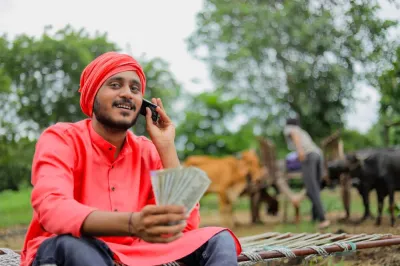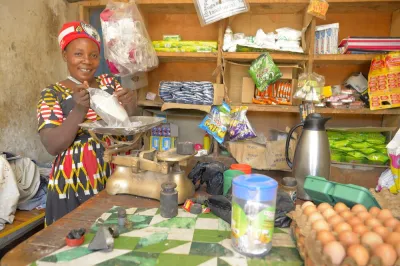COVID-19 FinDev Weekly Update | 21-27 May 2020
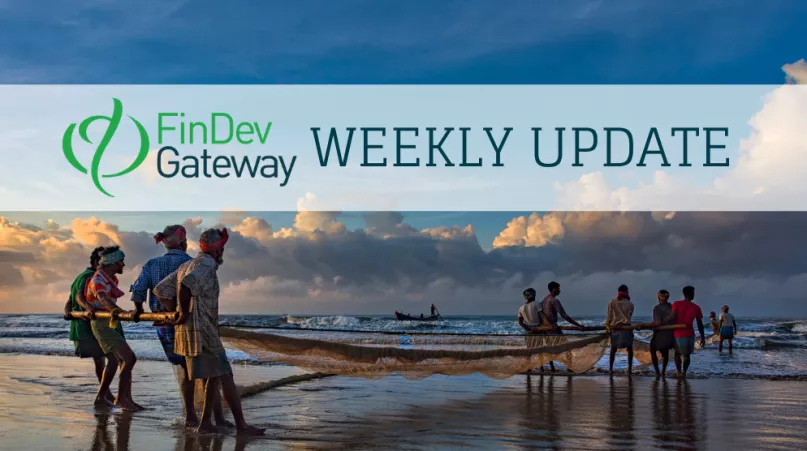
FinDev Gateway has created this COVID-19 weekly update with the latest and most relevant knowledge resources for financial inclusion as they become available. Sign up to receive FinDev's weekly update each Friday with a summary of the main issues covered during the week.
If you have content to share in our weekly update, please submit here or contact us directly.
Weekly Summary
- Building individual and household resilience. The responses of governments and donors should support financial tools that help build and maintain the resilience of low-income individuals and households, according to a CGAP blog. A recent analysis of data published on the Financial Access Initiative shows that over half of low-income households in countries included in the analysis would not be able to cover emergency expenses equivalent to several weeks of pay.
- Resilience of MFIs. According to a recent MSC analysis, lessons from previous shocks point to the resilience of the Indian microfinance sector. After the economic crisis, following the country’s demonetization measures, loan repayment rates recovered up to 80 percent within a month and reached over 90 percent within three months. Experience with other shocks in India shows that the impact varies across clients and geographies, but eventually, most borrowers repay their loans.
- Adoption of fintech mobile apps is up. This FinDev blog by researchers from the university of Zurich and Women’s World Banking shows that daily downloads of finance apps in Android devices jumped by about 30 percent since lockdowns; this is based on a recent analysis of data from over 70 developed and developing countries. Women and older populations face the risk or being excluded given that the gender gap in mobile phone ownership remains high in some countries; for example, in Bangladesh only 58 percent of women own a mobile phone compared to 86 percent of men.
- Finance will play a critical role in reducing food system disruptions. Authors of a recent World Bank blog draw attention to the important role public banks, financial cooperatives, and microfinance institutions can play as the main providers of capital to smallholder farms and agricultural MSMEs.
Asia
- In Bangladesh, the number of garment workers receiving their wages via digital transfers is rising. In India, more neighborhood shops now accept digital payments, but cash still remains important.
- The Philippine Payments Management Inc. (PPMI) reported that as digital payments have risen during the pandemic, the agency observed an uptick in hacking attempts, scams and payment fraud.
- The Cambodian Central Bank had to reiterate the need for a soft approach to borrowers, as more reports show that clients are forced to sell assets in order to pay microfinance debts.
- In Myanmar, travel restrictions and government orders to defer repayments, as well as lend at lower interest rates, have led to a cash flow crisis, reducing MFIs’ ability to operate at a time of urgent need for capital from the rural population due to COVID-19.
Africa
- Ecobank and Google have partnered to offer a range of digital solutions to make banking operations easier for customers.
- Morocco extended its national lockdown until June 10th; financial institutions are under pressure as 34 percent of households in the country say they have no source of income.
- Côte d’Ivoire has launched a relief package to help the informal sector. About $16 million will be distributed to 40,000 informal workers in affected sectors such as tourism, transportation and services.
- In Zambia, the economy is projected to contract after two decades of growth. The Bank of Zambia cut its key interest rate to mitigate the negative effects of COVID-19.
Latin America and the Caribbean
Most articles and knowledge resources referenced in this section are in Spanish.
- Latin America is now the epicenter of the global pandemic; Brazil, Mexico and Peru are among the region's worst hit countries.
- Peru has made it possible for financial institutions to open mass accounts without owners’ prior consent. The accounts will be used to distribute emergency funds, but owners can also use them for other purposes. So far, the government has distributed the emergency aid to 70 percent of the 4.5 million households that qualified for assistance.
- In Colombia, a study conducted by Bain & Company reports that 6 out of 10 Colombians surveyed have switched to electronic payments (credit cards and digital payments) since the beginning of the pandemic.
- At an International Donor Conference in Brussels this week, donors pledged $2.79 billion in support of refugees and migrants from Venezuela who are excluded from national health and social welfare programs during the pandemic.
For more on LAC, check out the latest Portal FinDev Weekly Update in Spanish.
Arab World
Some articles and knowledge resources referenced in this section are in Arabic.
- Over the past five years, Yemeni MFIs have adapted their operations and products in response to war. In the face of COVID-19, the microfinance sector is embracing greater digitization. According to the Social Fund for Development and the Yemen Microfinance Network, the sector offers now remote work and online training to staff, and business development services to clients on digital marketing and sales. The MFIs also provide more digital financial services at low or no-additional cost.
- The Financial Regulatory Authority in Egypt has developed a stress test in order to determine the ability of non-banking financial sector to deal with the financial shock resulting from the pandemic.
For more on the Arab world and resources in Arabic, check out the latest FinDev Weekly Update in Arabic.
COVID-19 Resources
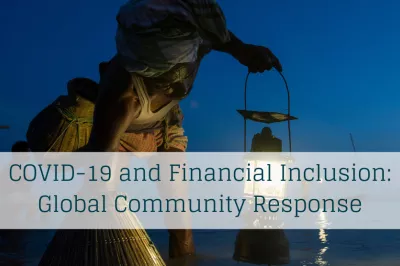
Global Community Response to COVID-19
A list of organizations offering resources and insights on COVID-19 & microfinance
FinDev Coronavirus Data Tracker
Data relevant for financial inclusion - find out who is tracking what
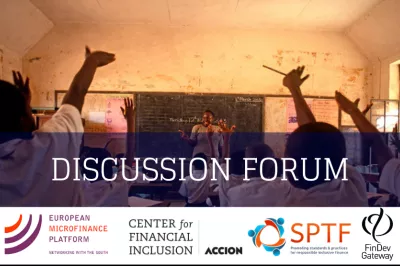
Discussion Forum
Forum for the financial inclusion sector to discuss responses to COVID-19
New Information Platforms
View our complete list of organizations offering resources and insights on COVID-19 & microfinance >>
G2P payments systems have become more critical in the wake of the Covid-19 pandemic. G2P Network facilitates learning and the sharing of information on the modernization of Government-to-person payment systems using digital technology.
This page outlines World Bank policy guidance for ways to mitigate risks to financial markets and maintain liquidity to support economic recovery once the health crisis is resolved.
This page offers World Bank policy guidance on best practices to support viable firms and preserve employment, while balancing the need for rapid action with maximizing limited resources.
Blogs & Opinion
If you have a blog idea and would like to write for the FinDev Blog, please see our review our guidelines. We do not cross-post blogs that have been published elsewhere, but if you wish to share an existing blog post in our next FinDev Weekly Update, you can send it to us using our contact form.
Customer Resilience
Financial Services Build Resilience in Face of Crises Like COVID-19
How Resilient Are We? A Dive Into the Global Data on How People Deal with Unexpected Shocks
Fate of the Microfinance Sector
Microfinance Recovery Analysis: Using Time Series of Northern Arc Portfolio Data (India)
Difficult Days: How Long Can Small Lenders Last?
Fate of MFIs Post the COVID-19 Lockdown – Will They Prove Resilient Again? (India)
Agricultural Finance
To Avoid Food Insecurity, Keep Finance Flowing
Digital Financial Services
Financial Inclusion Is Going Digital. Can Women Follow?
CVA (Cash and Voucher Assistance) Response – COVID-19, Privacy, Carrots and Open Banking
Learning About Digital Benefit Payments in a Pandemic (Bangladesh)
Recent Publications
For a complete list of publications and to learn how you can share your research with us, visit FinDev's Publications page.
Impact of COVID-19 on the Global Financial System
This briefing summarizes the outcomes of discussions on the impacts of COVID-19 on the global financial system, highlighting participants’ views on financial developments and on the highest priorities for policy-makers moving forward.
The Global Impact of COVID-19 on Fintech Adoption
This publication draws on mobile application data from 74 countries to document the effects of the COVID-19 pandemic on the adoption of digital finance and fintech.
View All Publications Related to COVID-19 >
News
For the latest news on the impact of coronavirus on financial inclusion, visit our News listing pages.
COVID-19: Governments Must Protect the Rights of Migrants During the Pandemic and Beyond, UN Experts Urge
UN human rights experts today called on States to protect the rights of migrants and their families, regardless of their migration status, during and after the COVID-19 pandemic.
Philippines: Consumers Shopping, Banking From Home Warned vs Rash of Digital Payment Fraud, Hacking
While the COVID-19 pandemic has increased usage of digital payments, there has been an observed increase in attempts at scams and financial crimes.
Nigeria: Banks Offering Access to Low Interest Funds
As part of measures to cushion the impact of the coronavirus pandemic, the Chief Executive Officer of FirstBank Nigeria, Dr. Adesola Adeduntan, has disclosed that banks are currently offering customers access to low interest funds.
India: More Kirana Shops Accept Digital Payments as Customers Prefer Contactless Shopping
Payment companies have reported a surge in digital transactions for buying essential goods since the lockdown began, and more and more fintechs are now working with mom-and-pop stores to enable them to transact digitally.
Cambodians Forced to Sell Assets to Repay Loans as Coronavirus Hammers Economy
Many Cambodians are being forced to sell their livestock and farms to pay off debts to banks and microfinance institutions, prompting calls for the government to prevent lenders from collecting during the outbreak.
View All News Related to COVID-19 >
Webinars
For the latest events - hosted by organizations worldwide - exploring the impact of coronavirus on financial inclusion, visit our Events listing page.
Investing in Agriculture During the COVID-19 Crisis: Perspectives From the Impact Finance World
Customer Due Diligence and Know-Your-Customer Innovation for COVID-19 Recovery
Virtual Roundtable on COVID-19 and Women’s Economic Empowerment
Business Survival Bootcamp for Businesses in Rwanda
